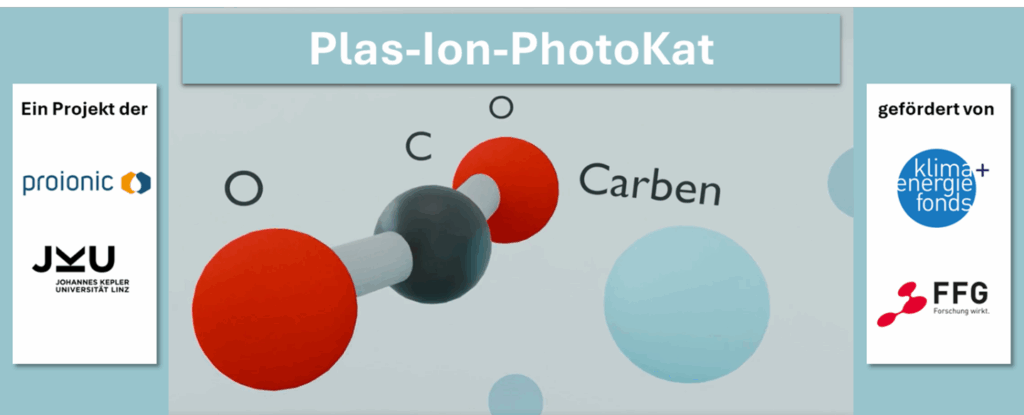As part of the funded project Plas-Ion-PhotoKat, Proionic collaborated with researchers at Johannes Kepler University Linz on the development of ionic liquids and their application in photocatalyzed CO₂-Reduction.
At the launch of the “Plas-Ion-PhotoKat” project (FFG-Nr. 888408), funded by the “Climate and Energy Fund” and the “Austrian Research Promotion Agency” (FFG), researchers at Proionic started working closely with the Institute of Applied Physics (IAP) and the Linz Institute for Organic Solar Cells (LIOS) at Johannes Kepler University (JKU) Linz on the development of electrochemical CO₂-reduction using photocatalysis and the power of ionic liquids.
Drawing on its expertise in ionic liquids production, Proionic made a significant contribution to the progress of the project, while also expanding its core competencies in the field of these renewable energy technologies. A range of new materials to substitute the disadvantaged state-of-the-art tetrafluoroborate-based anion was developed and systematically optimized to improve the overall efficiency of the electrolysis process.
In addition to regular project meetings, valuable knowledge exchange took place during research stays at the partner institutions. To conclude the project after more than three years, a well-crafted and engaging video was produced, offering an accessible overview of the project’s goals, developments, and outcomes:
 We need your consent to load the content of YouTube.
We need your consent to load the content of YouTube.If you click on this video we will play the video, load scripts on your device, store cookies and collect personal data. This enables [Google Ireland Limited, Irland] to track activities on the Internet and to display advertising in a target group-oriented manner. There is a data transfer to the USA, which does not have EU-compliant data protection. You will find further information here.

Sigrid Wolf (Sr. Electrochemist)
“The use of ionic liquids as electrolytes in renewable energy technologies with a view to a more sustainable future is an exciting field of research to me. Combining electrochemistry and photocatalysis with ionic liquids was a particular challenge, but the expertise of the individual research partners enabled us to advance the development. Last year’s stay at JKU in Linz was particularly important in this regard, as it provided me with practical insight into the development work of my fellow researchers, resulting in new strategies for progressing the project.”
Give us a call or send us an email.
Interested in learning more? Send us a mail:
Markus Damm
Head of R&D
m.damm@arkema.com




